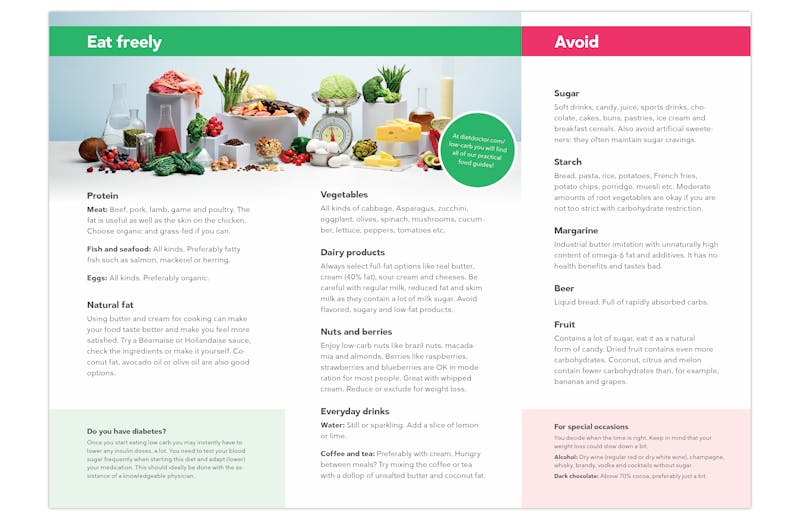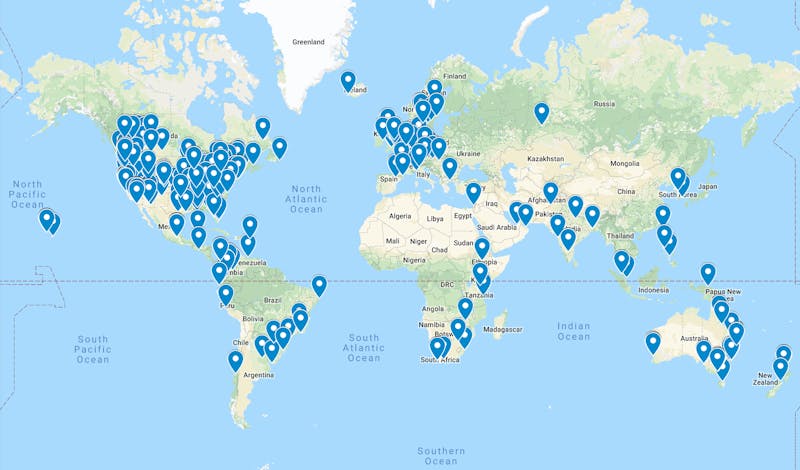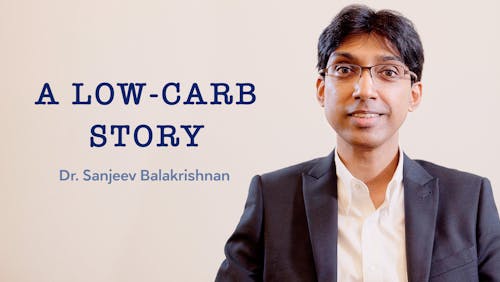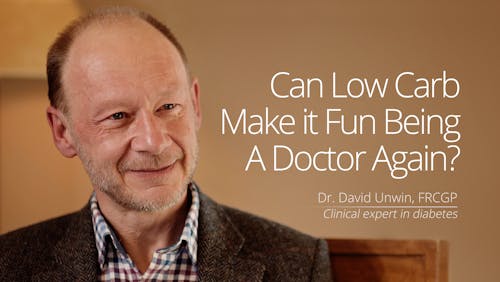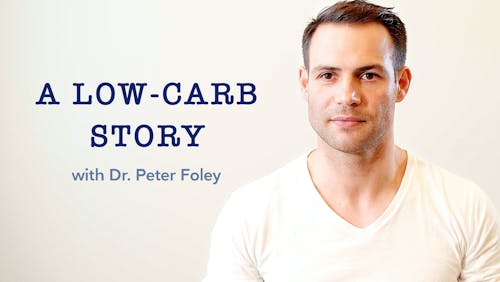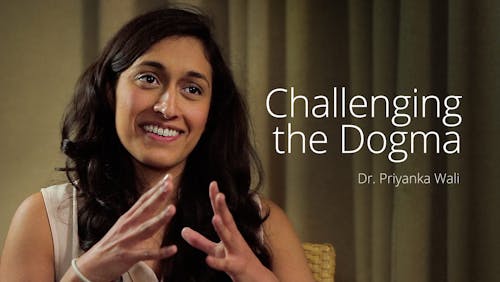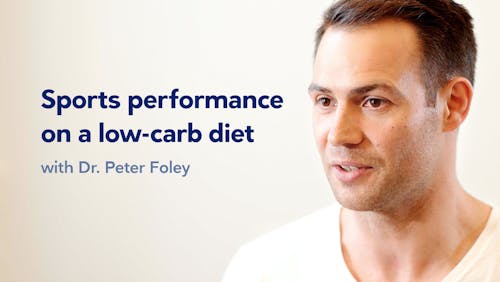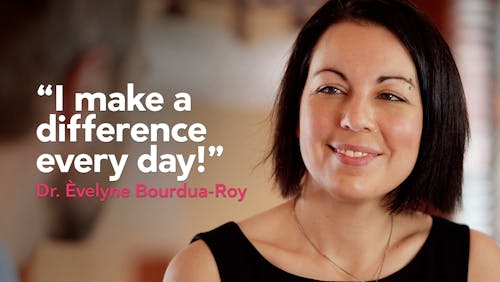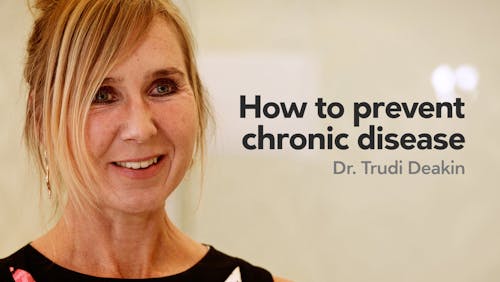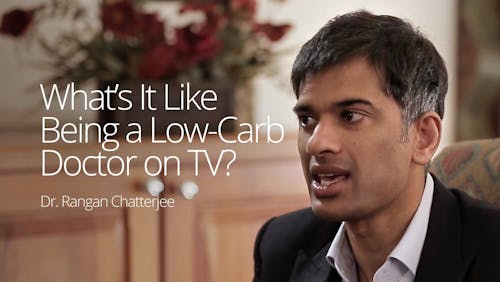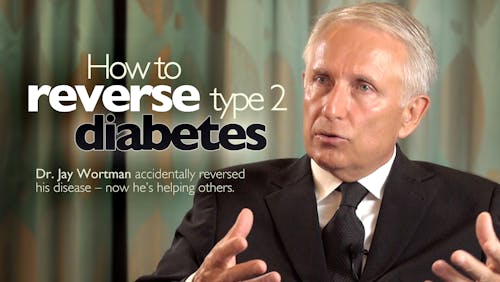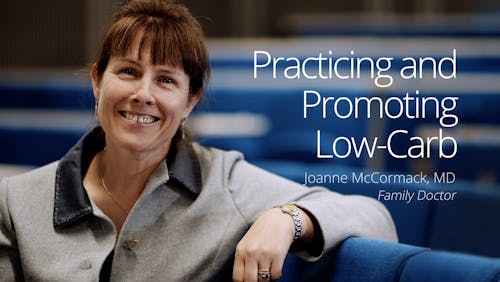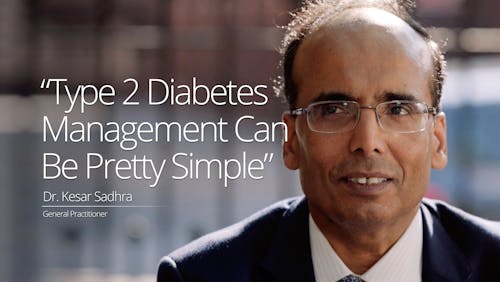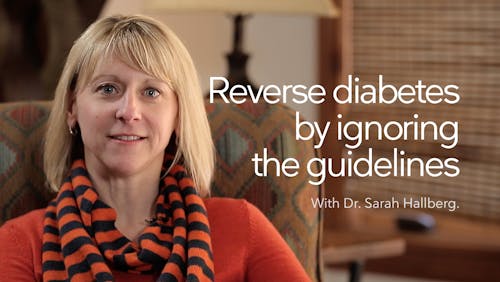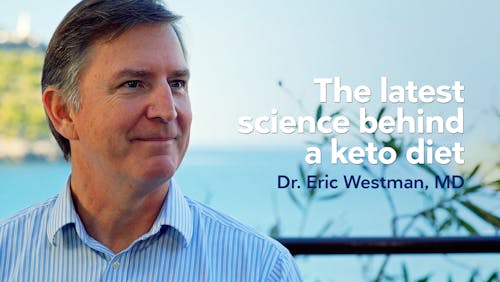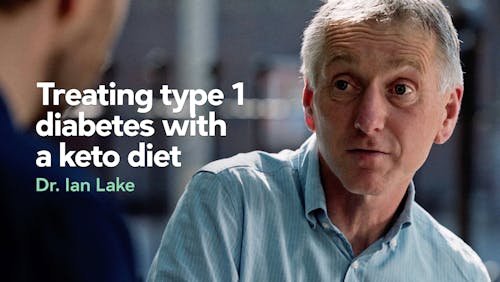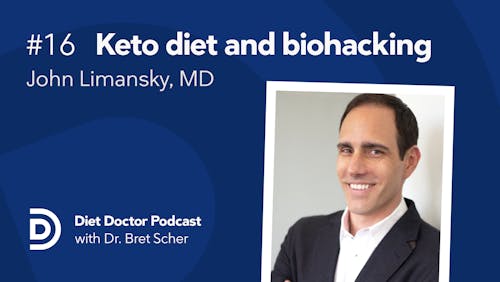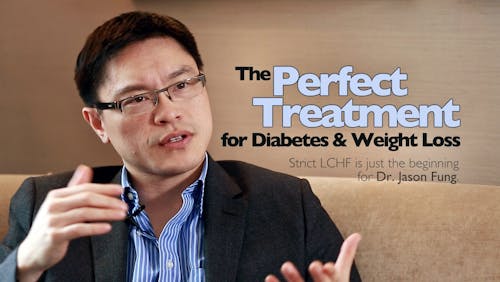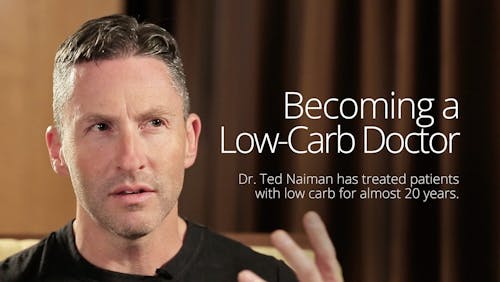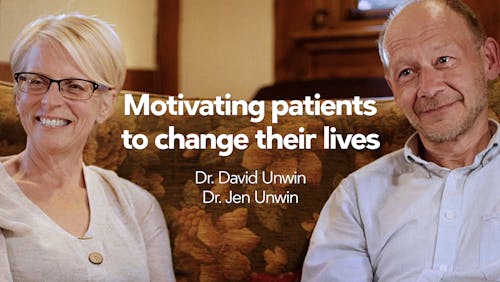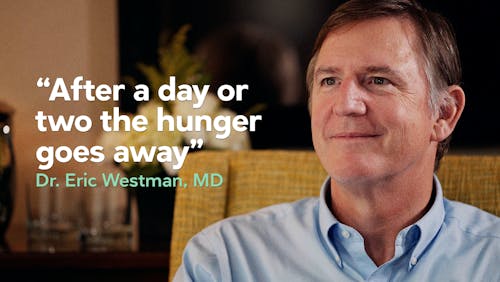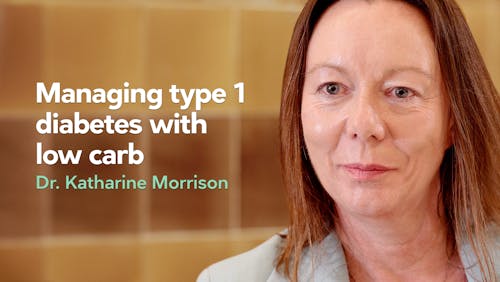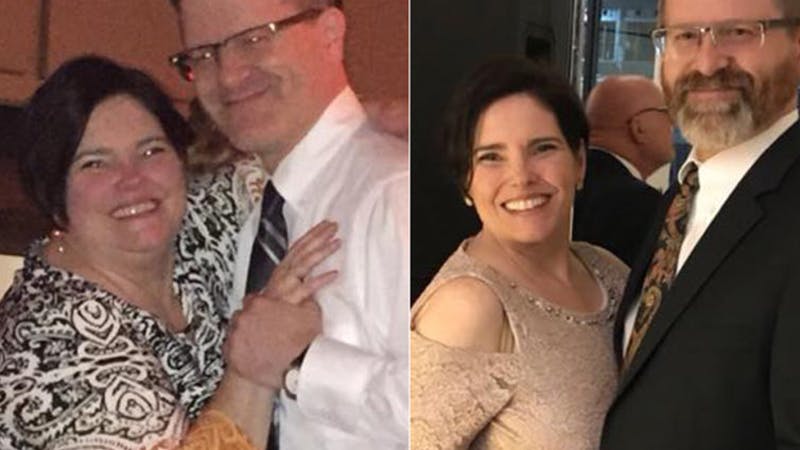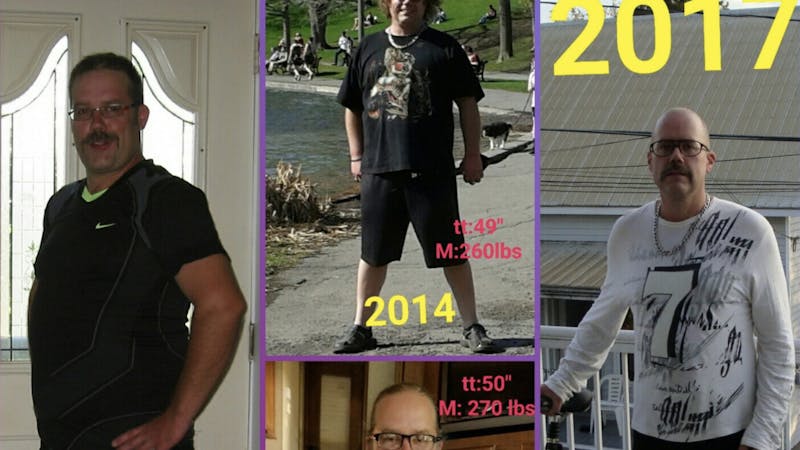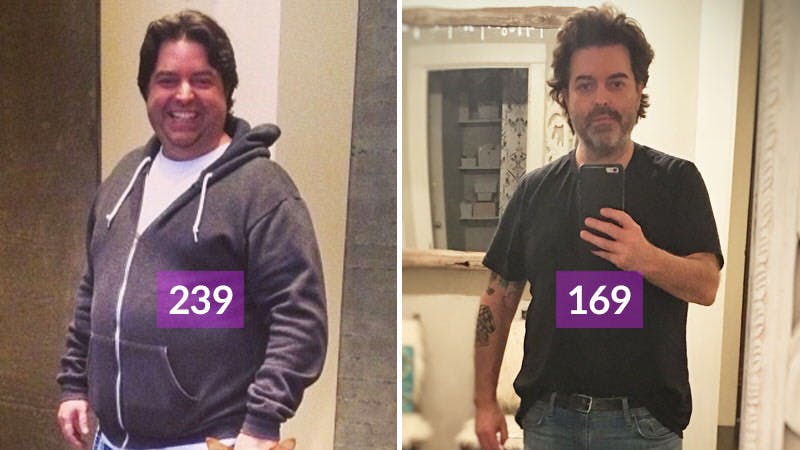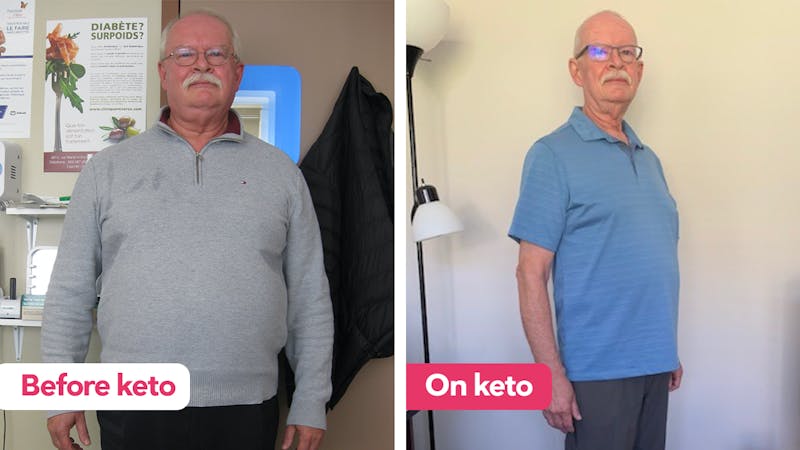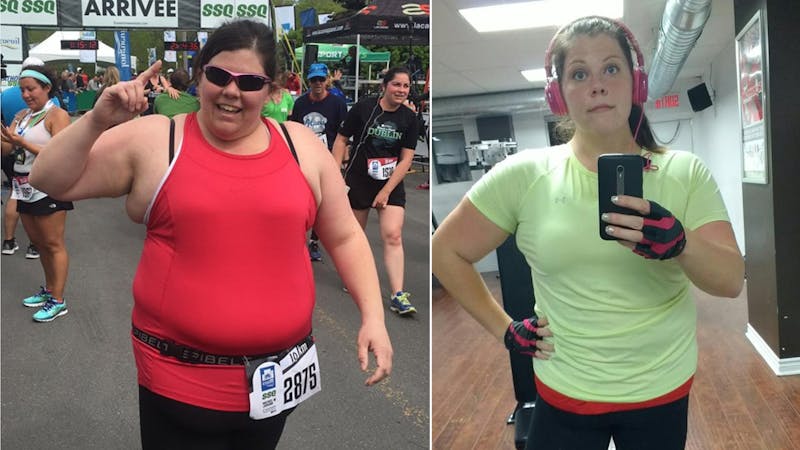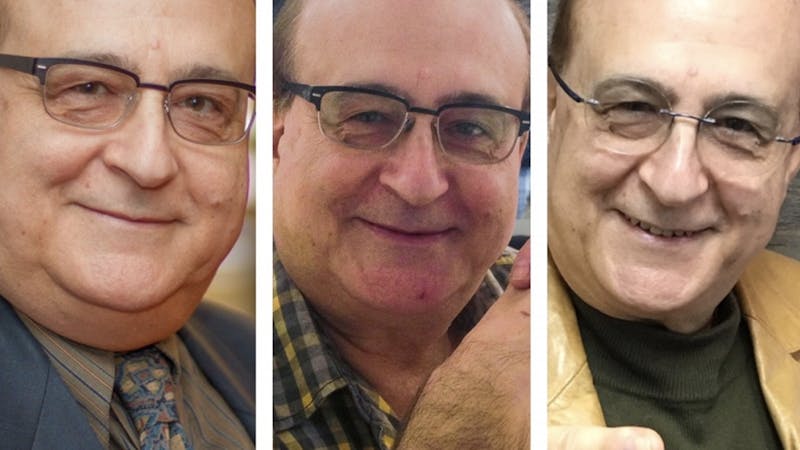Low carb & keto
for clinicians
1. Introduction
Are you a clinician curious about how low-carb nutrition can help your patients? Look no further. Or maybe you’re a clinician who has heard about low-carb nutrition, but some outlandish claims have given you a reason to doubt its scientific foundations. We sympathize with that perspective too.
Our main goal at Diet Doctor is to make low-carb diets simple for people who could benefit from them and to do so in the most trustworthy and reliable manner possible.
This includes making it easy for clinicians to learn about low-carb diets. Carbohydrate reduction expands the options clinicians can offer patients. As these hundreds of success stories show, many individuals find low carb to be a life-changing discovery.
But there’s another important change that can occur: Not only can low carb transform patients’ lives, it can transform your clinical practice. Rising rates of metabolic diseases have highlighted just how ineffective our tools for dealing with these conditions are.
We think all clinicians would like to see their patients become healthier. They’d like to remove medications instead of always adding them. Many clinicians who have started using carbohydrate reduction as a therapeutic tool have been able to do just that. As a result, they’ve found more enjoyment, satisfaction, and patient engagement in their daily work.
We can help that happen for you too, by giving you the tools to assist patients in working to reverse, rather than just manage, chronic conditions like obesity, type 2 diabetes, and metabolic syndrome.
2. Misconceptions about low-carb and keto diets
We also understand if you are not yet sold on the idea that low-carb diets can help your patients improve their health long-term.
If you are concerned about some of the things you’ve heard about these diets, we have a guide dedicated to helping you understand the long-term safety and effectiveness of therapeutic carbohydrate reduction.

The guide for doctors skeptical of low carb
This guide will help explain the science surrounding low-carb diets. If you are a healthcare practitioner, this guide will hopefully help you reexamine the risk/benefit balance of low-carb diets.
3. The science behind low-carb and keto diets
While carbohydrate reduction is not a “cure-all” and there are many conditions for which no proof of benefit exists, studies have shown carbohydrate reduction can help improve these common conditions:
- Dozens of studies show that low carb is an effective weight loss tool.
- Many studies demonstrate its effectiveness in reversing the clinical signs of type 2 diabetes or pre-diabetes and helping patients reduce their use of diabetes medications.
- Beyond weight loss and glycemic control, it improves other features of metabolic syndrome including blood pressure and dyslipidemia.
- Several studies show it helps manage epilepsy.
- Preliminary evidence shows it can reverse PCOS.
- More preliminary findings indicate that low carb may be a beneficial option for people with irritable bowel syndrome (IBS), Alzheimer’s, and other conditions.
4. Tools for low-carb clinical care
No worries. We have all the tools you need to incorporate carbohydrate reduction in your practice, from a fully accredited CME course to patient education handouts and clinician resources.
We encourage you to start with our free CME actvity, Treating metabolic syndrome, type 2 diabetes, and obesity with therapeutic carbohydrate restriction, and then explore other resources, such as our low carb for doctors video series.
5. Continuing medical education activity
The CME activity, Treating metabolic syndrome, type 2 diabetes, and obesity with therapeutic carbohydrate restriction, was designed by and for clinicians. This course provides clinicians with the information and tools they need to use therapeutic carbohydrate restriction with their patients and includes a comprehensive review of the science of carbohydrate restriction as an option for helping patients improve their health.
If you would like your colleagues or your own healthcare team to know about this course, you can use our CME informational flyer to print, email, link, or post on a bulletin board.
If you are a physician, physician’s assistant, nurse practitioner, registered nurse, or registered dietitian, you can apply for a certificate that indicates you’ve completed our CME course and meet the criteria specified by Diet Doctor regarding ethical and appropriate clinical practice.
You can also join our map by filling out this online form and sending a high-resolution head-shot photo to anne.mullens@dietdoctor.com.
After you finish the course, we encourage you to look around the rest of our website.
6. Low carb for doctors video series
In our low carb for doctors video series, Dr. David Unwin walks you through what you need to know to help your patients be successful following a low-carb or keto diet. Dr. Unwin is a family physician in the UK who has been treating patients with low-carb diets since 2012.
In 2016, he won the prestigious NHS Innovator of the Year award for his work with diabetes patients. Although aimed at doctors, other healthcare professionals can also learn more about low-carb care from Dr. Unwin’s experiences.
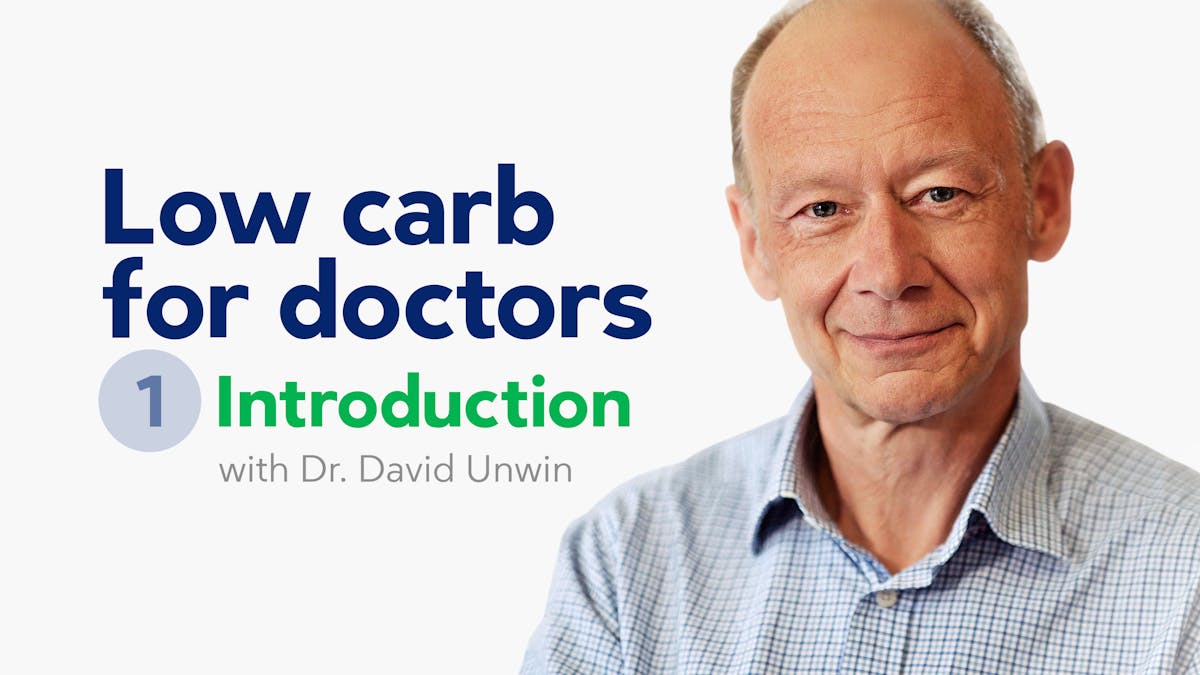
Low carb for doctors video course
This course will cover very practical tips for doctors, like how to effectively discuss the low-carb lifestyle with patients, how to handle medications, safety, patient motivation and much more.
7. Patient education resources
When it comes to helping your patients with recipes, meal plans, and practical tips for getting started and long-term maintenance, we have all the tools you need for providing low-carb care to patients who will benefit. These printable pdfs will educate patients on how to effectively adopt a low-carb lifestyle.
- Brochure
- Sample menu
- Shopping list
- Meal planning
- Substitutes for favorite foods
- Simple meals and planned leftovers
- Patient resources
- Target protein ranges
In addition, you can send your patients to DietDoctor.com to learn more. The most important resources on the site are freely available to everyone.
8. Clinician resources
These one-pagers condense key points from our CME course in one-page clinic reference tools.
- Target protein ranges
- Monitoring ketones
- Fasting insulin and HOMA-IR ranges
- Lab tests and follow-up schedule
- Type 2 diabetes medication reduction
- 5-day food diary
Many people can safely start a low-carb or keto diet on their own. But individuals on certain medications — such as diabetes or blood pressure medications — may require more preparation and support. These guides can help you learn more about how safely work with your patients as they begin carbohydrate restriction.
- Helping patients adopt low carb
- Starting low carb or keto with diabetes and blood pressure medications
- Monitoring patients on low-carb: Lab tests
- Pre-existing health issues
Clinicians can find additional information about “Low-carbohydrate nutrition approaches in patients with obesity, prediabetes, and diabetes,” in this online flipbook created by a group of clinicians and researchers with many years of experience in low carb.
Do you want to know about carb restriction in special cases such as breastfeeding, mental health, and other contexts?
9. Find a low-carb doctor
On our “Find a low-carb clinician” page, you’ll see the names, faces, and stories of clinicians who use low-carb and keto diets with their patients.
This page also has a map of over 600 physicians (and growing!) you can use to connect with colleagues. If you’d like to put yourself on that map, you’ll also find a form and instructions on that page for joining this directory.
10. Low-carb clinicians’ stories
Listening to the experiences and insights of fellow clinicians can be a great way to learn more about how to use carbohydrate restriction in your own practice.
- Dr. Bret Scher: Evaluating the evidence, challenging medical dogma
- Dr. David Unwin: Can low carb make it fun being a doctor again?
- Dr. Ted Naiman: Treating patients with low carb for 20 years
- Dr. Evelyne Bourdua-Roy: How I became an LCHF doctor reversing type 2 diabetes
- Dr. Peter Foley: Low carb and me – my journey as a GP
- Dr. Christopher Stadtherr: My path to low carb
11. Patients’ stories
You may also be inspired by the stories of individuals who have improved their health and lost weight using carbohydrate-restricted diets.
“I am completely blown away by the changes”
Christine has completely transformed her health in only one year with a keto diet and intermittent fasting. Here she shares all the benefits and what it has been like ditching carbs.
As Dr. Èvelyne Bourdua-Roy noted, “Perhaps low carb isn’t for everyone, but everyone deserves to know it’s a therapeutic option, and that it is safe and evidence-based.” Don’t you think your patients deserve this option as well?
Did you enjoy this guide?
We hope so. We want to take this opportunity to mention that Diet Doctor takes no money from ads, industry or product sales. Our revenues come solely from members who want to support our purpose of empowering people everywhere to dramatically improve their health.
Will you consider joining us as a member as we pursue our mission to make low carb simple?
Interested in becoming a DD Pro member?
We hope so. We are excited to announce the creation of a program designed especially for clinicians like you. We call it DD Pro. The goal is to design a program that takes the burden off you and gives you and your patients the resources you need to succeed.
Learn more about DD Pro
